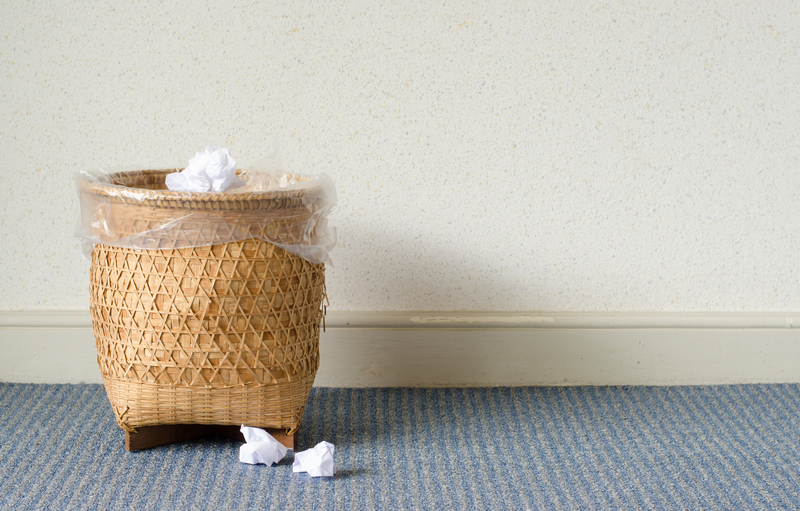As the world becomes more environmentally conscious, the need to manage green waste efficiently has never been more crucial. Whether you're a seasoned environmentalist or just starting on your eco-friendly journey, these clever waste hacks offer sustainable solutions to everyday challenges. Let's dive into the top 10 green waste strategies you can employ to reduce your environmental footprint.
1. Composting: Nature's Recycling System
Composting is one of the most effective ways to reduce green waste while nurturing your garden. By turning food scraps and yard debris into nutrient-rich soil, you're enhancing plant growth and reducing landfill contributions.
How to Get Started with Composting
- Choose a suitable spot in your yard for your compost pile or bin.
- Mix green materials (fruit and vegetable scraps, coffee grounds) with brown materials (leaves, twigs, paper).
- Maintain moisture and regularly turn your compost pile for optimal decomposition.

2. Embrace Vermicomposting
Vermicomposting, or worm farming, is an excellent alternative for those lacking outdoor space or seeking faster composting solutions. This method harnesses the power of worms to break down organic matter, resulting in high-quality compost.
Setting Up Your Worm Farm
- Purchase a vermicomposting bin and red worms (typically available at garden centers).
- Feed your worms small amounts of organic waste like food scraps and paper.
- Harvest the worm castings periodically for use as natural fertilizer in your garden.
3. Grasscycling: Let It Stay
Grasscycling refers to the practice of leaving grass clippings on your lawn after mowing. This simple technique not only reduces waste but also replenishes essential nutrients to the soil, enhancing green space health.
Benefits of Grasscycling
- Reduces the need for synthetic fertilizers.
- Saves time and effort in yard maintenance.
- Promotes a healthier and greener lawn.
4. Mulching Magic
Utilizing mulch is a fantastic way to repurpose garden waste while enhancing soil health. Mulching involves spreading organic material like leaves, grass clippings, or wood chips around plants to retain moisture, suppress weeds, and provide nutrients.
Quick Tips for Effective Mulching
- Choose the right type of mulch for your garden needs.
- Apply a 2-4 inch layer around plants and trees, avoiding direct contact with stems.
- Renew your mulch layer periodically to maintain effectiveness.
5. Creative Reuse: Upcycle and DIY
Transforming waste into functional or decorative items is an excellent way to manage green waste innovatively. By upcycling, you can give new life to materials that would otherwise end up in a landfill.
Ideas for Upcycling Green Waste
- Turn old wooden pallets into a compost bin or garden planter.
- Use broken ceramics as colorful garden mosaics or mulch.
- Create bird feeders from discarded plastic bottles.
6. Eco-Friendly Lawn Care
Maintaining a beautiful lawn doesn't have to be environmentally taxing. Implementing eco-friendly practices reduces green waste production while promoting a lush, vibrant green space.
Efficient Lawn Care Tips
- Opt for manual or electric lawn mowers over gas-powered ones.
- Water your lawn during early morning or late evening to reduce evaporation.
- Choose drought-resistant grass species to minimize water waste.
7. Plant a Native Garden
Native plants are adapted to local climates and require less maintenance, water, and fertilizers. By cultivating a native garden, you reduce green waste through minimal intervention while supporting biodiversity.
Getting Started with Native Gardening
- Research native plant species suitable for your region.
- Create plant groupings that offer mutual benefits, such as pest control and pollination.
- Minimize lawn areas and incorporate wildlife-friendly elements.
8. Smart Kitchen Waste Management
Making smart decisions in the kitchen can significantly cut down on green waste. From conscious purchasing to effective disposal, these kitchen waste hacks have a big impact.
Reduce Kitchen Waste with These Tips
- Plan meals and buy ingredients in bulk to reduce packaging waste.
- Store leftovers properly and preserve excess food through canning or freezing.
- Utilize vegetable scraps for homemade stocks and broths.

9. Community-Based Green Waste Solutions
Engaging with community initiatives or starting your own can significantly amplify the impact of green waste reduction. By working together, communities can create sustainable solutions that benefit everyone.
Ways to Get Involved
- Join or establish a local composting program.
- Participate in community clean-up events and green waste workshops.
- Encourage local businesses to adopt sustainable practices.
10. Educate and Advocate
Knowledge sharing and advocacy are powerful tools in the fight against green waste. By educating others and promoting eco-friendly practices, you can contribute to a broader cultural shift towards sustainability.
Steps to Influence Change
- Host workshops or informational sessions on waste reduction techniques.
- Support policies that encourage sustainable practices and waste management.
- Share personal experiences and successes in reducing green waste with your network.
By implementing these top 10 green waste hacks, you can make a significant contribution towards a more sustainable future. Start small and gradually incorporate these practices into your routine to create a positive environmental impact, paving the way for greener living for generations to come.